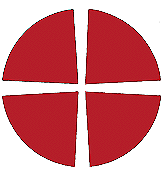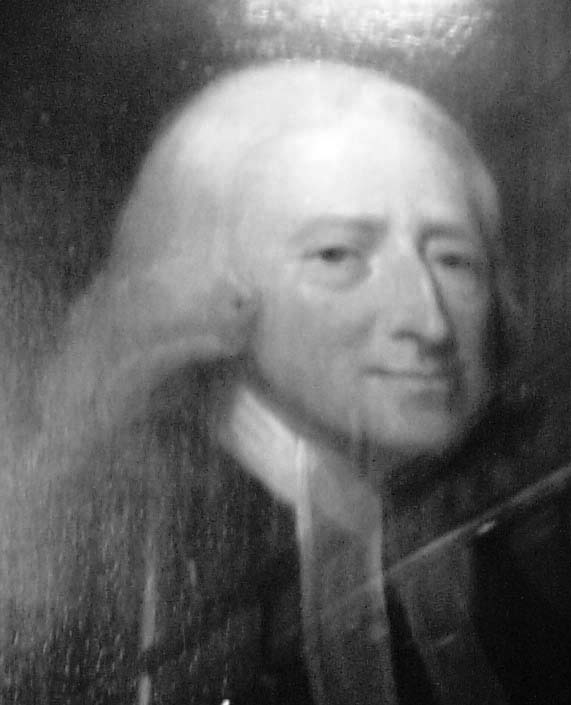 Derby
Methodist
History
Derby
Methodist
History

 Derby
Methodist
History
Derby
Methodist
History

- written for John Wesley's 300th Anniversary
A providence for sure,
Plucked from the flames above,
That this young boy be saved
To preach about God's love.
In him God's power was seen;
He travelled far and wide
To quell the angry crowd
And turn them to God's side.
His passion still abounds
In people here today;
Continuing his work
For God, in all, we pray.
Colin Hinds

He was an Anglican priest, the leader of an earnest, devout and scholarly group in Oxford whose members (including his brother Charles) became known as Methodists. Their methodical prayer and Bible readings were a reaction against the worldliness of student life rather than a revolt against the Church. He went to the American colony of Georgia to act as priest to the settlers, and although his tactlessness led to his early return to England, his fellowship meetings, the hymn-singing, and the contact with the Moravians (an Anabaptist sect) brought him invaluable experience.
After his profound spiritual conversion in 1738 he began widespread preaching, taking to the open air as early as 1739. At Bristol in the same year he established a chapel and a school for the religious societies. As the Anglican Church showed indifference to his work, or even became actively opposed to him, he began to found Methodist societies wherever he preached, and he chose lay preachers as full-time helpers. In 1744 he drew up his strict rule-book for the regulation of Methodist societies. The American War of Independence had cut his contact with the colonies and in 1784 it became necessary for him to ordain twenty-seven preachers for America, the Anglican Church having refused to do so.
During his 50-year ministry he traveled over 200,000 miles, mostly on horseback, and delivered more than 40,000 sermons. He preached in industrial areas where the parish system had broken down. The religious revival for which he was responsible, the 'Great Awakening', not only created Methodism but challenged the Anglican Church into reviewing its own evangelism.
His brother Charles Wesley (1707-88), was the co-founder of Methodism. He accompanied John to America and on his return carried out exhausting preaching tours, but his genius lay in hymn-writing.
(Taken from the Oxford Interactive Encyclopedia)
A Protestant Church founded by John Wesley in the 18th century. Stressing the individual believer's personal relationship with God, Wesley organized his followers into 'societies' with emotional class-meetings, regular attendance at which was a prerequisite of membership. Wesley wished his followers to remain within the Anglican Church, but after his death Methodism's rejection of theological doctrine and traditional ecclesiastical authority led to its development as a distinct Church.
In Wales the religious revival inspired by Howel Harris and Daniel Rowlands in the 18th century led to the establishment in 1811 of a dominant, Calvinist form of Methodism. The Church has suffered many secessions, especially of the Methodist New Connexion, the Primitive Methodist Church, and the Bible Christians. In the USA the Methodist Church divided into many groups, largely over attitudes towards slavery.
In the 20th century the various Methodist bodies came together again, notably by the merging of the Wesleyan Methodists, the Primitive Methodists, and the United Methodists, as the Methodist Church in Britain in 1932. And by the uniting of three Methodist churches as the Methodist Church in the USA in 1939. This merged with the Evangelical United Brethren Church in 1968 to form the United Methodist Church. The United Methodist Church is the largest single Methodist church; it had almost nine million members in 1989. The World Methodist Council, founded in 1881, provides a link between the forty million Methodists in the world.
(Taken from the Oxford Interactive Encyclopedia)
So in a few paragraphs we have a digest of John Wesley and the Methodist Church which he founded. He was born at the right time with special talents and the need for a revival in the Church of England was never more obvious to him than when he formed the 'Holy Club'. Despite his aristocratic background he was driven for fifty years to reach the ordinary people. He was intelligent, inquisitive, organized, methodical, undaunted, physically strong and he had a message that could not be ignored.
My task was to produce a display for St John's Methodist Church. My knowledge of the man was limited and as I dug deeper into the history books, spoke to people, visited the local studies library, and scoured the Internet I found much more than expected. His achievements were so great that no matter how much information was collected it failed to do him justice.
Nothing seemed to stand in my way and providence even gave me the key to open the 'King Street Safe' that contained valuable Methodist documents, untouched since the 19th Century. The display finally grew to 15 wall panels to enable it to include a local element.
Colin Hinds 17 July 2003